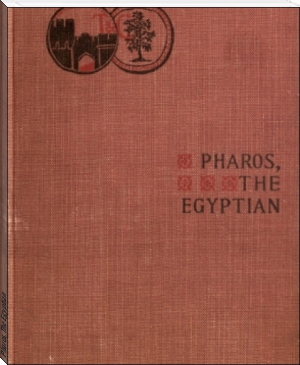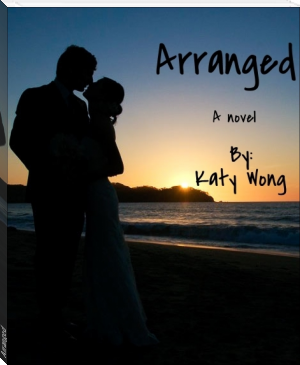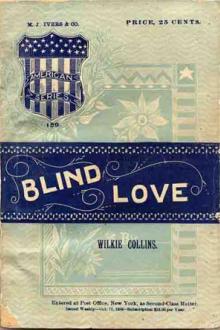Pharos, The Egyptian by Guy Boothby (reading rainbow books .txt) 📖

- Author: Guy Boothby
Book online «Pharos, The Egyptian by Guy Boothby (reading rainbow books .txt) 📖». Author Guy Boothby
"Your thoughts are easily read," he began, with a repetition of that queer little laugh which I have described before; and as he uttered it he leaned a little closer to me till I was sick and faint with the mere horror of his presence. "You think me mad, and it will require more than my assurance to make you believe that I am not. How slight is your knowledge of me! But there, let us put that aside for to-night. There is something of much greater importance to be arranged between us. In the first place, it is necessary both for your sake--your safety, if you like--and for mine, that yonder mummy should pass into my possession."
"Impossible!" I answered. "I could not dream of such a thing! It was one of my poor father's greatest treasures, and for that reason alone no consideration would induce me to part with it. Besides, despite your assertion that it is for our mutual safety, I can not see by what right you ask such a favour of me."
"If you only knew how important it is," he repeated, "that that particular mummy should become my property, you would not know a single minute's peace until you had seen the last of it. You may not believe me when I say that I have been searching for it without intermission for nearly fifteen years, and it was only yesterday I learned you were the owner of it. And yet it is the truth."
If I had not had sufficient proof already, here was enough to convince me of his madness. By his own confession, until that evening he had had no notion of my identity, much less of the things I possessed. How, therefore, could he have become aware that I was the owner of the remains of Ptahmes, the King's magician? Under the influence of the momentary irritation caused by his persistence my intention of humouring him quite slipped my memory, and I answered sharply that it was no use his bothering me further about the matter, as I had made up my mind and was not to be moved from it.
He took my refusal with apparent coolness; but the light which still lingered in his eyes warned me, before it was too late, not to rely too much upon this. I knew that in his heart he was raging against me, and that any moment might see his passion taking active shape.
"You must excuse my saying so, Monsieur Pharos," I said, rising from my chair and moving toward the door, "but I think it would perhaps be better for both of us to terminate this most unpleasant interview. It is getting late and I am tired. With your permission, I will open the door for you."
Seeing that I was determined he should go, and realising, I suppose, that it was no use his staying longer, he also rose, and a more evil-looking figure than he presented as he did so Victor Hugo himself could scarcely have imagined. The light of the quaint old Venetian hanging-lamp in the middle of the room fell full and fair upon his face, showing me the deep-set gleaming eyes, the wrinkled, nut-cracker face, and the extraordinary development of shoulder to which I have already directed attention. Old man as he was, a braver man than myself might have been excused had he declined the task of tackling him, and I had the additional spur of knowing that if he got the better of me he would show no mercy. For this reason alone I watched his every movement.
"Come, come, my foolish young friend," he said at length, "in spite of my warning, here we are at a deadlock again! You really must not take things so seriously. Had I had any idea that you were so determined not to let me have the thing, I would not have dreamed of asking for it. It was for your own good as well as mine that I did so. Now, since you desire to turn me out, I will not force my presence upon you. But let us part friends."
As he said this he advanced toward me with extended hand, leaning heavily upon his stick, according to his custom, and to all intents and purposes as pathetic an example of senile decrepitude as a man could wish to see. If he were going off like this, I flattered myself I was escaping from my horrible predicament in an easier manner than I had expected. Nevertheless, I was fully determined, if I could but once get him on the other side of the street door, no earthly consideration should induce me ever to admit him to my dwelling again. His hand was deathly cold--so cold, in fact, that even in my excitement I could not help noticing it. I had scarcely done so, however, before a tremor ran through his figure and, with a guttural noise that could scarcely be described as a cry, he dropped my hand and sprang forward at my throat.
If I live to be a hundred I shall not forget the absolute, the unspeakable, the indescribable terror of that moment. Till then I had never regarded myself in the light of a coward; on the contrary, I had on several occasions had good reason to congratulate myself upon what is popularly termed my "nerve." Now, however, it was all different. Possibly the feeling of repulsion, I might almost say of fear, I had hitherto entertained for him had something to do with it. It may have been the mesmeric power, which I afterward had good reason to know he possessed, that did it. At any rate, from the moment he pounced upon me I found myself incapable of resistance. It was as if all my will power were being slowly extracted from me by the mere contact of those skeleton fingers which, when they had once touched my flesh, seemed to lose their icy coldness and to burn like red-hot iron. In a dim and misty fashion, somewhat as one sees people in a fog, I was conscious of the devilish ferocity of the countenance that was looking into mine. Then a strange feeling of numbness took possession of me, an entire lack of interest in everything, even in life itself. Gradually and easily I sank into the chair behind me, the room swam before my eyes, an intense craving for sleep overcame me, and little by little, still without any attempt at resistance, my head fell back and I lost consciousness.
CHAPTER IV.
When I came to myself again it was already morning. In a small square behind the studio the sparrows were discussing the prospects of breakfast, though as yet that earliest of all birds, the milkman, had not begun to make his presence known in the streets. Of all the hours of the day there is not one, to my thinking, so lonely and so full of dreariness as that which immediately precedes and ushers in the dawn; while, of all the experiences of our human life, there is, perhaps, not one more unpleasant than to awake from sleep at such an hour to find that one has passed the entire night in one's clothes and seated in a most comfortable armchair. That was my lot on this occasion. On opening my eyes I looked around me with a puzzled air. For the life of me I could not understand why I was not in my bed. It was the first time I had ever gone to sleep in my chair, and the knowledge that I had done so disquieted me strangely. I studied the room, but, to all intents and purposes, everything there was just as when I had closed my eyes. I only was changed. My brain was as heavy as lead, and, though I did my best to recall the events of the previous evening, I found that, while I could recollect the "at home" at Medenham House, and my return to my studio afterward, I could remember nothing that followed later. I was still pursuing this train of thought when I became aware of a loud knocking at the street door. I immediately hastened to it and drew the bolts. My feeling of bewilderment was increased rather than diminished on discovering an inspector of police upon the threshold, with a constable behind him.
"Mr. Forrester, I believe?" he began; and as soon as I had answered in the affirmative, continued: "You must excuse my disturbing you, sir, at this early hour, but the reason is imperative. I should be glad if you would permit me the honour of five minutes' conversation with you, alone."
"With pleasure," I answered, and immediately invited him to enter.
Having shut the door behind him, I led the way to the studio, where I signed him to a chair, taking up a position myself on the hearthrug before him. The constable remained in the passage outside.
"It is, as you say, rather an early hour for a call," I remarked, making a mental note as I spoke of the man's character as I read it in his large, honest eyes, well-shaped nose, and square, determined-looking chin. "What can I do for you?"
"I believe you are in a position to furnish me with some important information," he replied. "To begin with, I might inform you that a diabolical murder was committed at the old curiosity shop at the corner of the next street, either late last night or during the early hours of this morning, most probably between midnight and one o'clock. It is altogether a most remarkable affair, and, from the evidence we have before us, though no cries were heard, the struggle must have been a desperate one. From the fact that the front door was still locked and bolted when we forced our way in, it is plain that the murderer must have effected his escape by the back. Indeed, a man _was_ seen entering the alley behind the house between one and two o'clock, though this circumstance excited no suspicion at the time. The witness who saw him reports that he came along on this side of the street, in the shadow, and, though he is not at all certain on this point, believes that he entered one of the houses hereabouts. That on your right is empty, and the doors and windows are securely fastened. He could not, therefore, have gone in there. That on the left is a boarding-house. I have called upon the landlady, who asserts most positively that her front door was not opened to any one after ten o'clock last night. She informs me, however, that a light was burning in your studio all night, and I see for myself that you have not been to bed. May I ask, therefore, if you saw anything of such a man, or whether you can furnish me with such particulars as will be likely to help us in our search for him."
Like lightning, while he was talking, the memory of everything connected with the visit Pharos had paid me flashed across my mind. I glanced involuntarily toward that part of the room where the mummy had hitherto stood. To my amazement--I might almost say to my consternation--it was no longer there. What had become of it? Could Pharos, after disposing of me as he had done, have stolen it and transported it away? It seemed impossible, and yet I had the best of
 Reading books romantic stories you will plunge into the world of feelings and love. Most of the time the story ends happily. Very interesting and informative to read books historical romance novels to feel the atmosphere of that time.
Reading books romantic stories you will plunge into the world of feelings and love. Most of the time the story ends happily. Very interesting and informative to read books historical romance novels to feel the atmosphere of that time.




Comments (0)